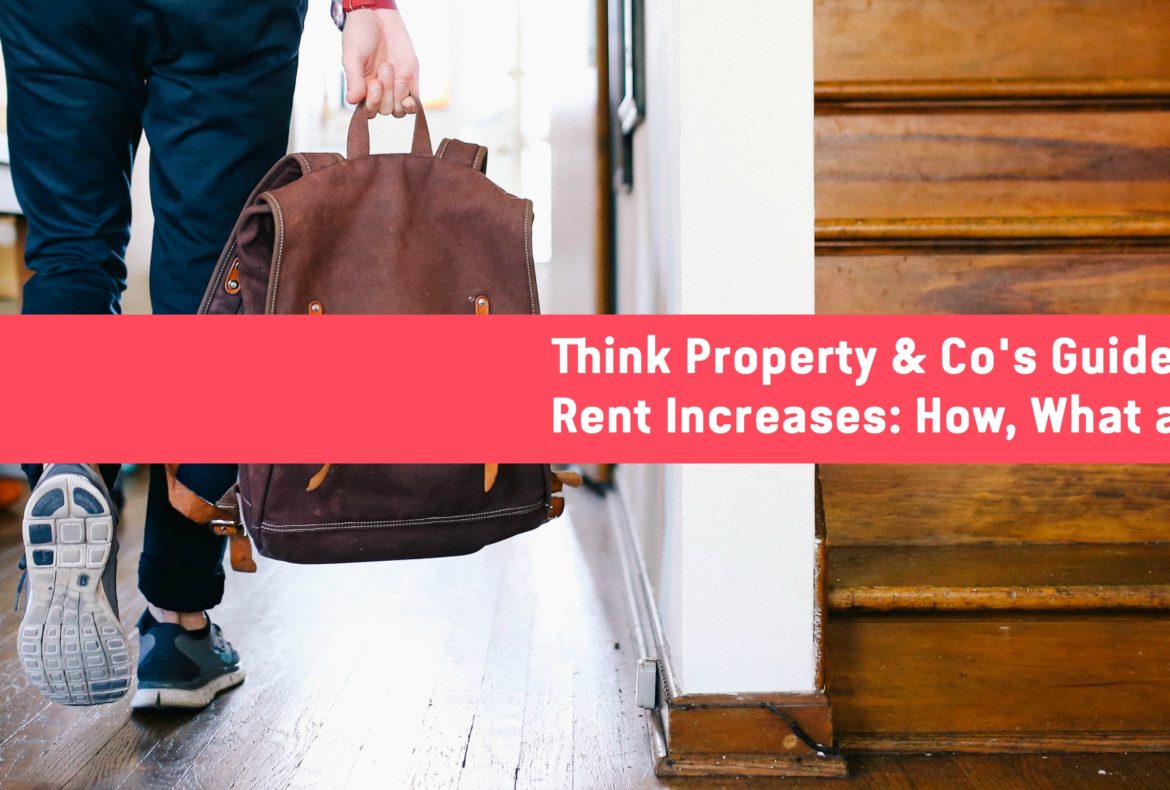
As a landlord, you’re handing over your investment asset in exchange for a weekly sum– you’re supplying housing to a market that’s demanding it.
The rental market itself determines how much you can reasonably lease your property for – which is why it’s essential to research rental demand in the area of consideration before buying an investment property. If there’s a glut of landlords attempting to lease their properties but few are available to purchase – you might find yourself paying a premium for a property, but struggling to find a tenant. In today’s blog, Think Property & Co unpack the ‘hows and whys’ of increasing the rent on your investment property.
Why Increase Your Rent?
Many landlords think that rental increases are simply part and parcel of every new tenancy agreement, or that an annual rent increase is a foregone conclusion. In rising markets where the housing market is undersupplied, this might be the case. But as markets balance and tenants are well-supplied, rental increases cannot be expected like clockwork. While some Australian markets are enjoying growth steady enough to support an annual increase of ten or fifteen dollars atop the weekly rental figure, ‘pocket’ trends like these can’t go on indefinitely.
If a tenancy agreement is coming to an end, you can opt to keep the rent as-is, or deliver a rent increase to your tenants. If a fastidious tenant is asking to renew their term, consider whether the additional $10 a week is worth the risk of losing that tenant, and the subsequent wear-and-tear of having tenants move in and out. By offering existing tenants a renewed lease at the same rate, you may enhance an already good relationship, safe in the knowledge you’re not about to be faced with a lengthy vacancy period or re-letting costs.
An experienced property manager will assist you to make a measured decision around appropriate rental increases, providing you with observations about the tenancy as it stands, and market demand for properties like your own. The outcome of these discussions will inform your decision on how to proceed. It may be the case that your current rental income simply isn’t representative of your property’s market value and an increase is appropriate.
How Do You Deliver a Rental Increase?
Rental increases are always much better received when there is a good landlord-tenant relationship in place. It can be helpful for your property manager to have a discussion with your tenant around why the rent has gone up, even if that’s simply identifying that you’re bringing the rent in line with comparable properties in the area.
Responding to maintenance requests and being respectful of your tenants’ privacy throughout the lease duration all contribute towards a working relationship that is accommodative of a rental increase. It’s important to work with your property manager when planning to deliver a rent increase, ensuring you remain compliant with current legislation and act in a way that benefits both your property and your investment goals.
If you’re a landlord struggling to understand how rental increases play a role in the management of your property portfolio, reach out to Think Property & Co for a new style of management that’s simply #BetterForEveryone!

